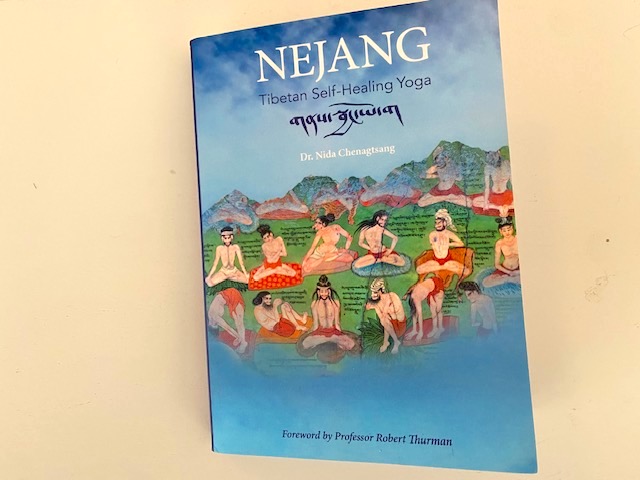Dr. Nida, the author of the book Nejang (Tibetan Self-Healing Yoga), shares ancient Tibetan knowledge and wisdom on breath retention and lifestyle. His philosophy aligns with the findings of renowned physiologist K.P. Buteyko, MD-PhD. Discover important techniques and the body of yogic knowledge from this book that will enhance your understanding of the connection between breath and health.
Happy Body, Happy Mind: Health is Wealth
This is the title of a chapter from the book Nejang. If you’re looking to enhance your well-being by mastering the art of breath regulation, this book is highly recommended.
Here is a quote from the abovementioned chapter:
A healthy lifestyle not only promotes good physical health – it also reduces stress and contributes to a happy and relaxed mind. If our mind is relaxed, then our physical health will naturally improve… Retaining the breath has the effect of releasing “happy hormones,” resulting in a stable and long-lasting sense of happiness and contentment. As we have seen, it is possible through both medical and spiritual techniques to extend one’s life. However, equally important to the quantity of years one can live is the quality of life that we experience during those years. Living long is of little value if one does not also experience the joy of living.
Did you know that ancient Tibetan wisdom believes that breath retention can bring happiness? This is supported by Dr. Buteyko’s research and clinical work, which shows that breathing less can create a feeling of euphoria originating from the heart chakra and spreading throughout the body. As a Buteyko teacher, I have seen how excessive air consumption can hinder happiness and contribute to negative thoughts, anxiety, depression, and various health problems. Dr. Buteyko called the CO2 concentration in the lungs “the main regulator of all body’s functions”; he stated that when this constant is significantly below the norm, a person’s life becomes full of suffering on physical, mental, emotional or many levels. Breathing nasally and less becomes a foundation for generating prana – the essential element for health and happiness, according to ancient yogis (and Dr. Buteyko).



